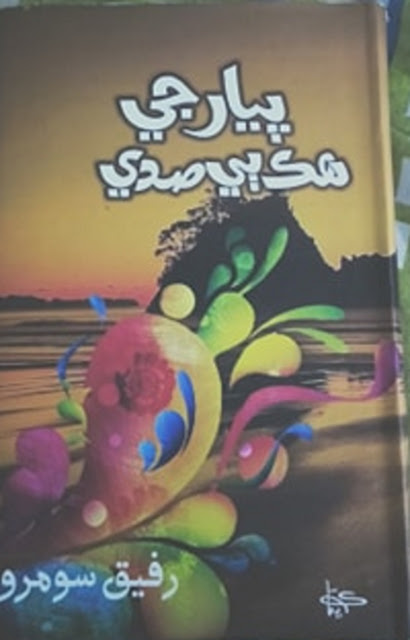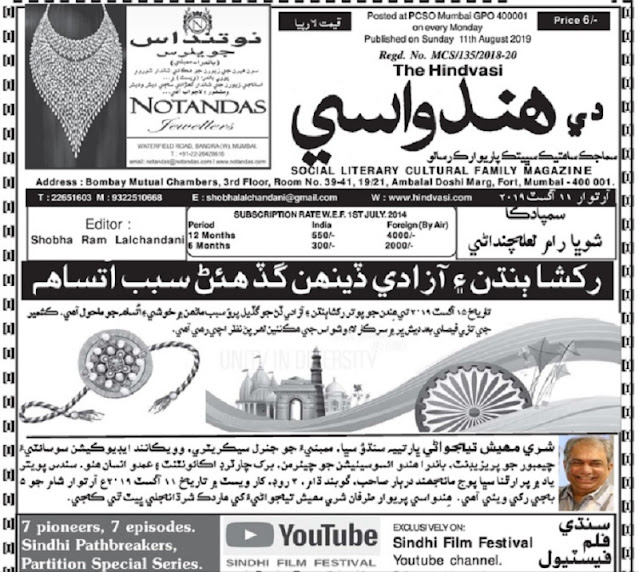Rafique Soomro And His Stories
The decades of 1960 and 70 were outstanding decades as far as Sindhi short story is concerned; there were many story writers who wrote some marvelous stories that could compete short stories written worldwide. Amar Jaleel, Ali Baba, Shoukat Hussain Shoro, Mushtaq Hussain Shoro, Manik and Naseem Kharal were the leading short story writers. In 70s Rafique Soomro also took to their line by writing short stories.
From early 1970s his name started to appear in literary journals as a short story writer, while in 1977, his first collection of short stories named "Insan Ji Goolah" was published, though his book got fair reviews from the critics as well as readers, but his second book "Mitti Sandu Mamroo" was published after 17 years, but this time his writings were highly criticized. He was accused of copying the diction of Amar Jaleel. While Rafique's three contemporary story writer's including Wajid Naz, Keehar Shoukat and Razaque Mahar accused him of plagiarizing Krishen Chander's story "Sajhi Ka Murda".
Responding to that allegation Soomro claimed that though he had seen Krishen's story in some digest but had not read it yet, while his story "Laash Ain Samandh" was based upon an event that took place in his own family.
In 2010, Rafique's third book "Pyar Ji Hik Be Saadi" was published by Kavita Publication, Hyderabad, this book contains a novella, short stories and sketches. In the introductory note Manzoor Jokhio wrote about Rafique:
"His contemporary writers either took refuge in TV drama writing or have left the field of literature, but he is still writing with great zeal."
He was highly praised by critics for his story "Moot Jo Rang", the main character of this story is a young postman, who has to deliver two telegrams , one contains a sad news, while other contains the good one, both telegrams are to be delivered in the same area, so he decides to deliver the bad news first as that house falls nearer than the other, when he reaches the doorsteps of the house, he finds household preparing for wedding ceremony of the son, who is at Hyderabad, seeing that the young postman is shocked and couldn't make up his mind because the telegram mentions that Mansoor, the to-be groom has died in the ethnic riots at Hyderabad.
Rafique wrote for this story that: "as though this unfortunate story foretold the death of my elder son Nadeem."
Narrating a phone conversation with another story writer Rafique wrote that:
"One day I received a phone call from writer Mohd Ali Pathan, who told me that he asked one of his friends named Ali Sheer, whether he wanted to cry? When he got no in reply. Yet he told him to cry by reading 'Moot Jo Rang'".
However, reading some of his stories one might come to know that he was fairly criticized for copying Amar Jaleel's diction, even he gave title to some of stories that matched of Amar Jaleel's titles for example Jaleel's one story is titled "Sard Laash Jo Safar", inspired from that Rafique gave title to his story "Sard Raat Jo Safar", title of his another story "Dard Ji Duneyan" is similar to Amar's story title "Dil Ji Duneyan".




Comments
Post a Comment